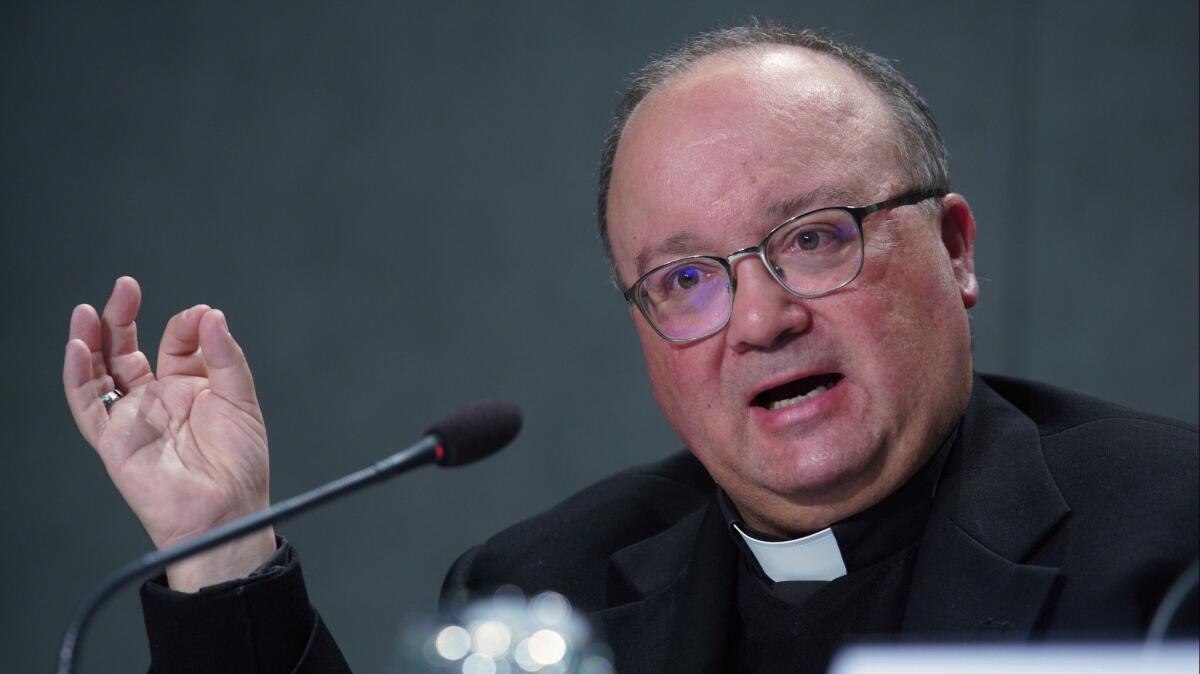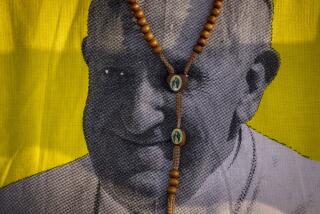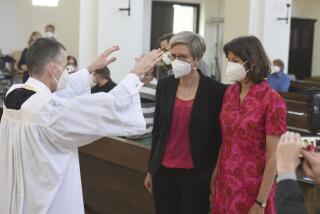Pope issues rules requiring clergy to report sex abuse and cover-ups to church officials

Pope Francis on Thursday introduced sweeping orders that will require priests and nuns to report accusations of sexual abuse or cover-ups to church authorities.
The rules do not, however, automatically require church officials to report accusations to police or other civil authorities, which has been a longtime demand of survivors of clergy abuse.
The new rules, which also protect whistleblowers from retribution, come three months after the pope held an emergency conference on clerical abuse. Contained in an apostolic letter called “You are the light of the world,” they are the Roman Catholic Church’s latest bid to deal with the sexual abuse crisis.
In his introduction to the letter, Pope Francis wrote, “In order that these phenomena, in all their forms, never happen again, a continuous and profound conversion of hearts is needed, attested by concrete and effective actions that involve everyone in the Church.”
The Vatican’s top abuse investigator, Archbishop Charles Scicluna, called the norms “epochal.”
“Even the leadership is answerable to canonical law — there is no immunity,” he said. “People must know that bishops are at the service of the people. They are not above the law, and if they do wrong, they must be denounced.”
Reporting abuse and cover-ups to church authorities was “formerly left up to individual consciences, it now becomes a universally established legal precept,” said Andrea Tornielli of the Vatican’s communications department.
However, admissions of abuse made by priests during confession are an exception. “Obviously, the seal of confession remains absolute and inviolable and is in no way affected by this legislation,” said Tornielli.
The rules require all dioceses to create a system to allow whistleblowers to report accusations, while shielding them from “prejudice, retaliation or discrimination.” And they no longer allow forcing victims who have settled with the church to stay silent.
Bishops and cardinals accused of abuse or covering up for priests are to be investigated by senior, or so-called metropolitan bishops, who must complete their reports within 90 days — unusually fast for the church’s notoriously slow bureaucracy — and can ask lay experts to assist them.
Chicago Cardinal Blase Cupich first proposed the use of metropolitan bishops in November at a meeting of U.S. bishops and pushed it again at the February gathering in Rome. Now, the pope’s new rules are likely to be reflected in new norms on abuse to be drawn up by U.S. bishops when they meet next month.
Houston Cardinal Daniel DiNardo, the head of the U.S. bishops’ conference, said on Thursday the new rules are a “blessing that will empower the church everywhere to bring predators to justice no matter what rank they hold in the church.”
Sex crimes covered by the rules include the abuse of minors and the use of child pornography, but also the forcing of an adult “through abuse of authority to perform or submit to sexual acts,” a reference to the growing scandal of priests raping nuns.
“It’s taken a long time, if you consider the scandals have been ongoing since 2002, but these rules close a lot of loopholes and are a milestone,” said Gerard O’Connell, an associate editor of America, the Jesuit magazine.
The rules do not compel priests to contact local civil authorities the moment they suspect abuse has taken place in their ranks. Instead, priests are told to follow the requirements of local civil law, which may not always require the reporting of allegations to police.
“They should have been proactive about mandatory reporting — the rules should say you should report abuse automatically to civil authorities,” said Marie Collins, an Irish victim of priestly abuse and a former member of Pope Francis’ anti-abuse commission.
Retired Pope Benedict reemerges to step into the roiling clergy sex abuse debate »
“A universal law has to factor in diversity of cultures,” said archbishop Scicluna, adding, “We cannot tell states what their citizens should be doing. We should respect domestic law.”
Although the rules update the preliminary stage of investigations, they do not touch how abuse cases are prosecuted once they reach the Vatican.
“The rules are a good step,” said John Allen, editor of the online faith site Crux.
“But there is nothing on prosecutions, which have been inadequate,” he said. “We have had thousands of priests laicized, but no cases of bishops punished for cover-ups that we know of. That means people may not see this as a new dawn.”
Years of priest abuse allegations have caught up with Los Angeles Archdiocese »
More to Read
Start your day right
Sign up for Essential California for news, features and recommendations from the L.A. Times and beyond in your inbox six days a week.
You may occasionally receive promotional content from the Los Angeles Times.






